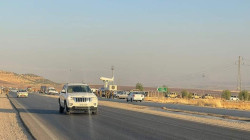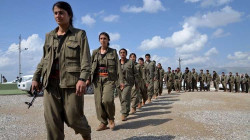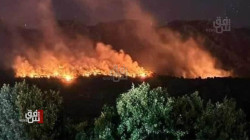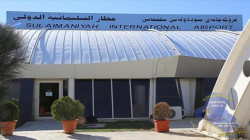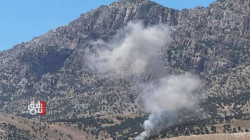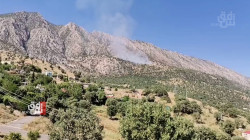Turkiye proposes joint operation center with Iraq to counter PKK threat
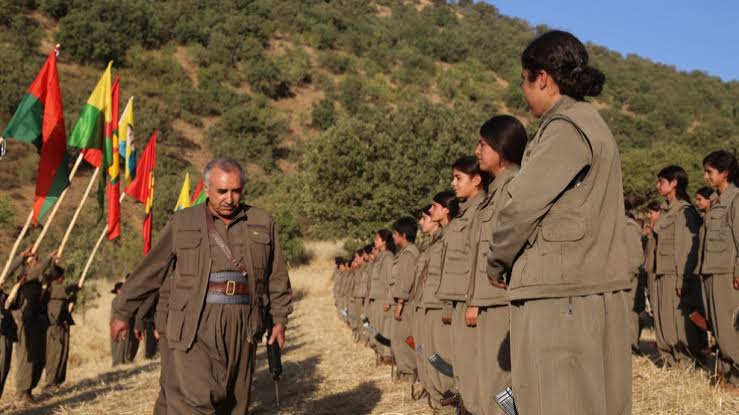
Shafaq News/ Turkiye has proposed the establishment of a "joint operation center" with Iraq to combat the Kurdistan Workers' Party (PKK), a move that has received a positive response from Baghdad.
According to a Turkish defense ministry official, the proposal aims to enhance cooperation in addressing the PKK's activities along the Iraq-Turkiye border.
During a visit to Kahramanmaras province in southern Turkiye, Defense Minister Yasar Guler expressed “optimism” about future collaboration with Iraq, highlighting the significant step taken by the Iraqi government in officially banning the PKK and recognizing it as a terrorist organization for the first time.
“When we went to Baghdad, the Iraqi government both banned it and for the first time acknowledged that it is a terrorist organization. After this, we will have joint work. We will establish a joint operations center,” Guler said.
“We have been fighting the PKK terrorist organization for 40 years. But unfortunately, for 40 years, the Iraqi government could not call them a terrorist organization or ban them. Such an organization lives in their own country and they do not feel any discomfort,” he said.
“We had a meeting in Ankara in December. Of course, this issue was emphasized very much in that meeting, and when we went to Iraq during our last trip to Baghdad, the Iraqi administration accepted and declared for the first time that the PKK is a terrorist organization. Of course, this is a pleasing thing for us.”
Futhermore, the Turkish Minister emphasized the importance of combating terrorism, describing it as a “major challenge for Turkiye.”
Last week, a high-level Turkish delegation, including Foreign Minister Hakan Fidan, Defense Minister Yasar Guler, and National Intelligence Organization (MIT) head Ibrahim Kalin, visited Baghdad for a top security meeting with Iraqi counterparts. This meeting marked the second round of discussions, with the first round held in Ankara in December.
During a press conference in Ankara, Brigadier General Zeki Akturk, the Turkish defense ministry’s advisor for media and public relations, stated that Iraq and Turkiye are ready to sign a strategic framework document. This document aims to establish a joint operations center as part of Ankara's efforts in combating terrorism.
"Both countries are positively inclined towards our proposals for the Joint Operations Center and other cooperation efforts in combating terrorism," said Akturk. He also noted that Iraq recognizes the PKK as a threat.
The PKK conflict, spanning four decades, has been a persistent challenge, with Guler expressing disappointment in the Iraqi government's historical reluctance to acknowledge and ban the PKK as a terrorist organization.
However, recent developments have signaled a shift in Iraq's stance.
Following high-level talks between Turkish and Iraqi officials, Iraq announced the designation of the PKK as a "banned organization," aligning with Turkiye's concerns and paving the way for enhanced cooperation in combating terrorism.
The Turkish Armed Forces have been conducting cross-border military operations against the Kurdistan Workers' Party in Northern Iraq since the 1980s.
In July 2015, a two-and-a-half year-long ceasefire broke down, and the conflict between Ankara and militants of the PKK – recognized as a terrorist organization by Turkiye, the U.S., Russia, and the European Union – entered one of its deadliest chapters in nearly four decades.
Since that date, the conflict has progressed through several phases. Between roughly 2015 and 2017 the violence devastated communities in some urban centers of Turkiye's majority-Kurdish southeast and – at times – struck into the heart of the country's largest metropolitan centers. From 2017 onward, the fighting moved into rural areas of Turkiye's southeast.
As the Turkish military pushed more militants out of Turkiye, by 2019 the conflict's concentration shifted to northern Iraq and northern Syria.
Turkish army has established several military bases at strategic points in the Matin mountain range in Iraqi Kurdistan, citing the expulsion of Kurdistan Workers' Party militants as justification.
In a TV interview last February, the President of Kurdistan Region, Nechirvan Barzani, was asked if Turkiye coordinates with Erbil when launching strikes against PKK in the region; Barzani explained, "The (Kurdistan) Workers' Party is a severe headache for the Kurdistan Region and Iraq as well. They do not value the legitimacy of the Kurdistan Region's institutions and threaten Turkiye from our territories. While we completely reject the principle of turning the lands of the Kurdistan Region into a source of threat to our neighbors, whether this neighbor is Turkiye or Iran."
He rejected that PKK, as opponents of Tehran and Ankara, "make the Kurdistan Region a safe area to create problems for these countries. It is very unfortunate that the PKK plays a very negative role in this context and uses the mountainous areas of the Kurdistan Region and tries to create problems for Turkiye. This is absolutely unacceptable from our side."
On many occasions, Ankara urged the Iraqi government to label the PKK a "terrorist" organization. On the other hand, Baghdad frequently called for an end to the presence of Turkish military forces on its land, demanding that Turkiye stop its attacks and respect Iraq's sovereignty.
